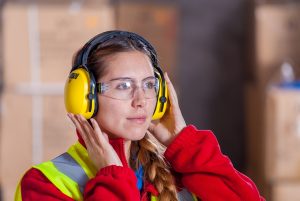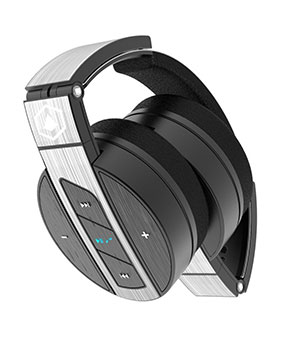Many workplaces are just noisy. And the fact that you need to spend at least 8 hours a day there, will definitely affect your hearing. So, you really need to protect yourself using earmuffs. And the best part is that it won’t affect your work as it will allow you to be more productive at the same time.
Just to give you an idea of how serious this problem is, the Occupational Safety and Health Administration estimates that 30 million people just in the United States are exposed to very loud noise each year. And usually, these people are the ones that are more affected with permanent hearing loss.
Every person has their own preference and their own requirements depending on their job. So, no matter if you prefer earmuffs or ear plugs, the most important thing is that you actually wear them. However, not all earmuffs or ear plugs are the same. The materials are different, the way they adapt (or don’t adapt) are different, the prices, among other things.
Overall, there are 5 major types of hearing protection:
#1: Disposable Foam Ear Plugs:
They are usually made with materials that are easily adjustable to your ear. They are usually only used once and they’re very affordable. Despite disposable foam ear plugs suit most adults, they’re usually not indicated for children or f the noise is just very intense.
#2: Reusable Ear Plugs:
The reusable ear plugs are usually made with durable materials like rubber or silicone. When they have quality, these earplugs can be washed and used several times. You can find reusable ear plugs with different sizes and shapes to make sure they fit everyone and provide a good hearing protection.
While some reusable ear plugs are designed to block constant levels of background noise, others are created to block frequent bursts of loud noise.
#3: Hearing Bands:
The hearing bands, also known as canal caps, are actually reusable ear plugs attached to a plastic band that wraps around your neck or head.
This is usually a good solution when you need to use safety glasses or a hard hat because the ear plugs will be in the right place thanks to the band. Usually, they are affordable and they’re designed for low to medium noise levels. They will block more or less noise depending on the reusable ear plugs you’re using.
#4: Earmufs:
Earmuffs are conceived to block and muffle noise by covering your outer ear. Most earmuffs are adjustable and some are designed to fit the top of the head, attach to a hard hat mount, or to fit behind your neck.
Earmuffs shouldn’t be used by people with facial hair, or when you use any type of protection gear like eyeglasses.

#5: Electronic Headsets:
Electronic headsets are also known as noise-cancelling headsets. This is due to the fact that when the sound appears from the outside, they block it. There are many different types of electronic headsets and they can block low, medium, and high noise levels.
One disadvantage of the electronic headsets is that, just like the earmuffs, they may not work very well when you have facial hair or wear eye protection.
As you can see, there are many different types of hearing protectors. It’s up to you to find which one would work better for you. It really depends on your work, the kind of noise you usually need to deal with as well as with your personal preferences.
Here are 5 tips that will help you protect your hearing besides the hearing protectors:
#1: Turn Down The Music:
Nowadays, it’s pretty common that you notice that more and more people are just listening to their music very loud. You just pass through them and while they’re using headphones, you’re still able to listen to it. This means they are listening to their music incredibly high and they don’t have a clue on how bad it can do to their hearing. Make sure that you don’t listen to your music this loud.
#2: The 60:60 Rule:
This simple rule is so easy to follow and can help you with your hearing protection. When you’re listening to music on your iPod or MP3 player, just listen to it for 60 minutes a day at 60% of the maximum volume.
#3: Turn Down The TV And The Radio:
Turn your radio or your TV down just slightly can also help your hearing. If you don’t know if it’s louder than it should, you can test it. Just try to talk to be heard by another person. If you have to raise your voice, you need to turn it down.
#4: Work Noise:
Even if in your work you aren’t usually bothered by a lot of noise, there are some constant noises that although low may affect you. So, nothing better than explaining the Human Resources about your problem and ask them what the best solution is for your problem.
#5: Recover Your Hearing:
According to the Action on Hearing Loss, your ears need to rest at least 16 hours after spending just 2 hours in a 100 dB sound. This can be a club, for example. However, by providing the time they need to recover, you’re reducing possible hearing problems.
We all suffer from noise. Either at home, at work, or even on the street. From your neighbor’s mowing their lawn, to the heavy machinery you need to use every day, to road construction. These are mere examples of what we need to deal with every single day.
The best news, however, is the fact that you can actually prevent this from affecting your hearing. There are so many different types of protectors that you just need to choose the best one for your needs. Make sure that you make a deep research about the ones that you prefer. In case you’re looking at earmufs, you can check the best earmuf reviews to get a better idea of what might work better for you.

